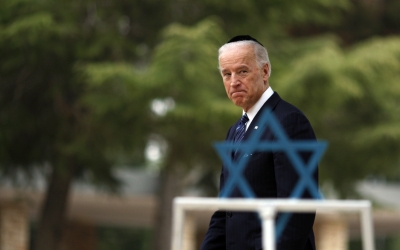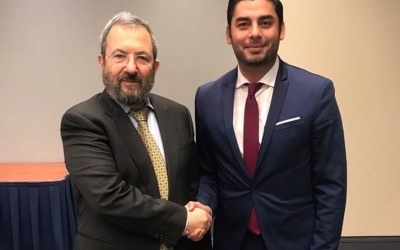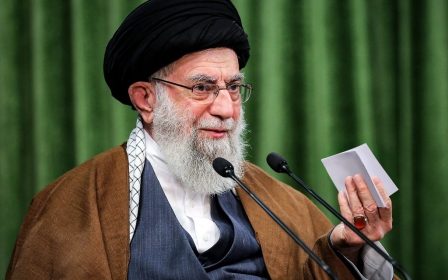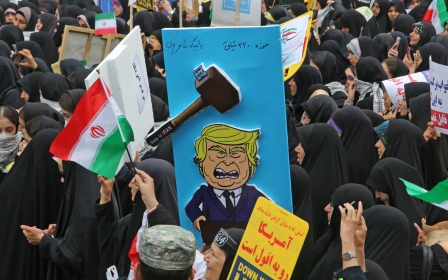US elections 2020: Campa-Najjar holds on with 'measure of hope' as Issa claims victory
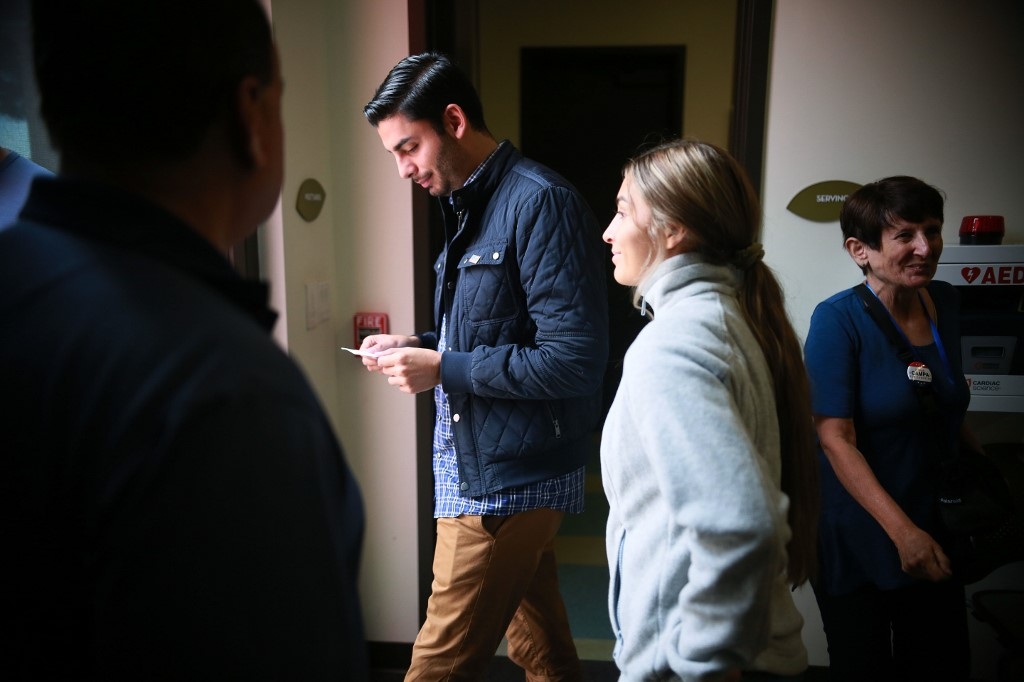
The race between two controversial Arab-American congressional candidates remains close, but with 78 percent of the vote reported, Republican Darrell Issa has claimed victory.
Issa, currently up more than 11,000 votes in California's 50th Congressional district, has called the race in his favour, while Democrat Ammar Campa-Najjar awaits a full ballot count.
Both of Arab descent by way of their fathers, the campaign between the two men in recent months had become focused on which supports Israel more, stirring up controversy within the Arab-American community.
The exchanges gained national attention last week when Campa-Najjar posted a picture touting a 2019 meeting with Ehud Barak, a former Israeli prime minister who led the military operation that killed his grandparents in 1973.
Now trailing in votes, Campa-Najjar's campaign has said it is "still looking at the returns with a measure of hope" that it can pull through a win.
New MEE newsletter: Jerusalem Dispatch
Sign up to get the latest insights and analysis on Israel-Palestine, alongside Turkey Unpacked and other MEE newsletters
But Issa, speaking to reporters on Wednesday evening, said "the race is over".
"It is statistically impossible for the outcome to be different," Issa said.
The race has not yet been called by the Associated Press.
Multi-million dollar campaigns
Issa, a Lebanese American, previously spent 18 years in Congress (2001-2019) representing California's 49th district.
In 2018, he announced that he would not seek re-election for his House seat, but threw his name in the ring for the CA-50 seat the next year, coming in second behind Campa-Najjar in the primaries.
Campa-Najjar, a small business owner and lecturer at San Diego State University, has accused Issa, a multi-millionaire businessman once considered the richest member of congress, of throwing money at the election as a means to victory.
"The fact that it took the former wealthiest member of Congress to try and buy this seat proves how formidable our people-powered campaign is," Campa-Najjar said on Wednesday.
Issa's campaign was bolstered by self-funding, having given or lent a total of more than $6.8m to his campaign during this election cycle.
Still, both campaigns ended in September with roughly $1.2m in cash available.
The fundraising totals generated by Issa and Campa-Najjar were two of the highest fundraising figures of any congressional candidates in San Diego County, according to the San Diego Union-Tribune.
While Campa-Najjar's campaign rejected all corporate political action committee money, according to OpenSecrets, he accepted about $43,000 from pro-Israel lobby groups in 2018 and around $24,000 in 2020. Issa's 2020 campaign accepted more than $10,000.
'Your community sees through you'
In the end, it was Israel, not the massive campaign spending, that caused controversy.
Issa, who is a pro-Israel hardliner, went after Campa-Najjar's pro-Israel credentials, accusing him of being an anti-zionist. "You basically don't want Israel to exist as a Jewish State," he said in one of many tweets pointed at his rival on the topic.
Campa-Najjar, who supports a two-state solution and the Democratic status quo regarding Israel, struggled to promote his pro-Israel credentials while also attacking Issa's.
The controversy took a turn when Campa-Najjar posted a photo of himself and the former Israeli PM smiling and shaking hands.
"Last year, I sat and met with former prime minister and legendary commando Ehud Barak to talk peace," he said in a post to Twitter.
"Those who know the history here, know this embrace may be one of the strongest acts toward a peaceful future and away from a painful past seen in a generation."
Many Palestinian Americans were taken aback by Campa-Najjar's post because of his family's history with the former prime minister.
Campa-Najjar's paternal grandfather, Muhammad Youssef al-Najjar, known as "Abu Yousef", was thought to be a senior member of the Black September group that took hostage and killed nine Israeli athletes at the 1972 Munich Olympics after failing to force Israel to meet their demands to release 230 Palestinian political prisoners.
Barak, who commanded an elite unit in the Israeli army at the time, led the retaliatory mission that resulted in the killing of Abu Yousef and his wife in front of Campa-Najjar's father in their family home one night.
"What began as a conversation that could have been tense ended up being one of reconciliation and peace, which I felt was important," Campa-Najjar told Jewish Insider of his meeting with Barak in a recent interview.
"It was a very cathartic experience," he said.
In the past, Campa-Najjar, whose mother is Mexican American, had gained support from pro-Palestinian camps for sharing his family's story.
Last year, he joined Congresswoman Rashida Tlaib's "#MyPalestinianSitty" Twitter campaign to honour Palestinian grandmothers.
"#MyPalestinianSitty was killed in her own home 16 yrs before I was born. She never hurt a soul," Campa-Najjar posted in August 2019. "The last memory her children have of her is stepping over her to get to the doorway."
Several pro-Palestinian advocates railed against Campa-Najjar, accusing him of exploiting and betraying his Palestinian heritage for electoral clout.
Noura Erakat, a Palestinian-American human rights lawyer and professor at Rutgers University, posted a series of tweets slamming Campa-Najjar's campaign move.
"You opportunistically used your Palestinian identity to fundraise & now throwing them under the bus to 'win'. We don’t need you," Erakat said.
While the many activists that railed against his post have yet to comment on Campa-Najjar's projected loss, it is unlikely he will gain much sympathy from the pro-Palestinian camp where he once garnered support.
"You could’ve been principled & accepted your electoral setbacks w/dignity. Instead, you flailed desperately & rushed to embrace anyone, no matter how awful, in the hope it might give you a boost," Omar Baddar, a Palestinian-American political analyst who has worked with several leading human rights groups, said last week.
"I doubt it'll work, but even if it does, your community sees through you."
Middle East Eye delivers independent and unrivalled coverage and analysis of the Middle East, North Africa and beyond. To learn more about republishing this content and the associated fees, please fill out this form. More about MEE can be found here.


